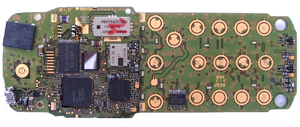
It has been an eventful week, but finally I’m registered for college! I know I announced it yesterday, but there was in fact a small hitch. I applied through the Postgraduate Applications Centre, which creates a student ID for you. However, I’m a graduate of the college I’m applying to – albeit more than twenty years ago – and so have an ID from then. Somehow it seems the two met head-on, creating a database SNAFU. I was two people at once, so therefore I was neither.
An ironic introduction, you may agree, to a course in Information Systems Management.
This wasn’t the only database buggery that happened to me either. As you may recall, I crashed a car this week too. On the day it happened I called my insurance’s breakdown recovery service. They explained to me that a collision with a tree is no longer a breakdown, even if it was caused by one, but they could send a recovery truck anyway and take it to a place of safety where damage could be assessed. As I was at my mother’s house at this point, and the wreck was off the public road, I had the truck pick me up so I could show him where to go.
The next day though when I phoned the insurance they said the vehicle had been removed by someone else. Apparently I’d cancelled it. I assured them that was wrong and they said they’d look into it.
I wouldn’t have worried at all about that, except for a strange coincidence. When the breakdown truck had pulled in to pick me up, there had been another one right behind it.
So there are rogue breakdown trucks listening in on the radio frequencies, patrolling the roads for accidents and stealing wrecked cars? It’s a nightmare vision. Nothing to do with reality of course, but a nightmare vision. Turned out it was just a cock-up of course. Maybe my car has two IDs as well.


